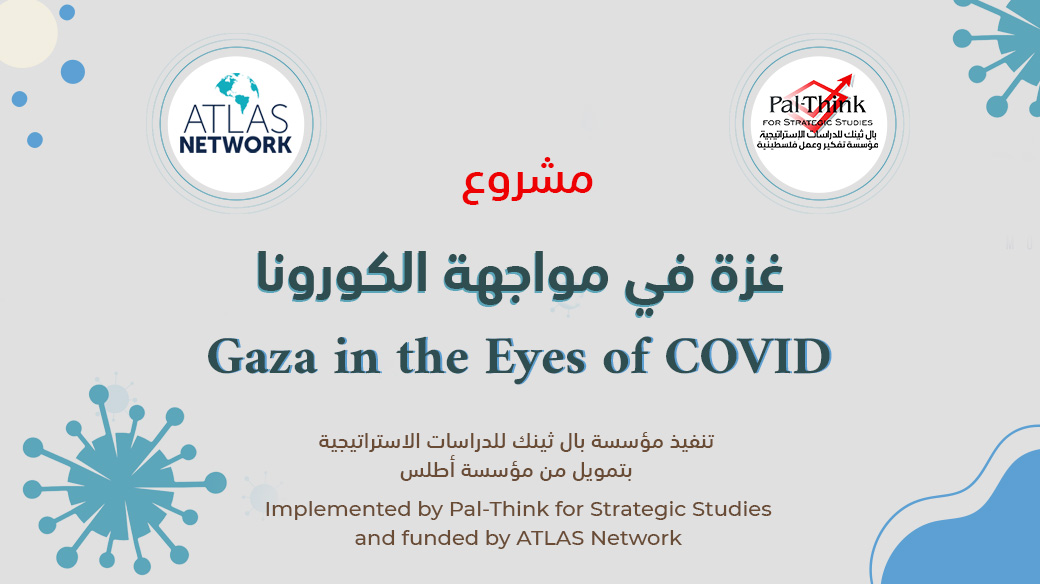Women’s participation in decision-making is a consistently discussed issue that the Palestinian community inclines to care of. Therefore, it was addressed during a radio episode under the activities of Gaza in the Eyes of COVID-19 project implemented by Pal-Think for Strategic Studies and funded by Atlas Network.
Ms. Heba Al-Danaf, a legal researcher and advocate, deliberates the reality of women’s participation in decision-making prior to the outbreak of the Coronavirus, saying that it is an issue based on considering political participation as a right stipulated in Article (29) of the Palestinian Basic Law and in respect of Article (10) alongside the guarantees of equality approved by Article (9) of the same law, which iterates Human rights’ international standards, especially in Article (7) in CEDAW, which emphasized the elimination of all forms of discrimination against women at political level.
Ms. Al-Danaf states the absence of 49% of Palestinian society, including women, in decision-making and effective political participation is a complete absence of democracy. She adds “we suffer a weak representation of women in high decision-making positions, we notice women presence at public base as an executive tool at the political level”.
She considers the deterioration of the Palestinian situation in various fields as a motive to enhance the level of women’s participation in decision-making. Going forward, she mentions the need of women reflections over policies to ensure its improvement.
Our speaker believes the Corona pandemic revealed numerous problems in the Palestinian society, including women representation within emergency committees facing the pandemic, which she considers as an extension of the weak presence of women in decision-making process. In this context, she stresses that women representation in ministerial committees was 14%, by virtue of the presence of women in the positions of the Minister of Health, women’s affairs and tourism. However, they were represented by 0% in higher administrative centers to combat the pandemic. While women representation in the daily operations room headed by the prime minister has only one woman, emergency committees headed by only one-woman governor, Laila Ghanem. The researcher reaffirms that women represent 16% in local committees in the northern governorates, 10% in Jerusalem governorate, and totally devoid in all government committees within the higher decision-making centers in the Gaza Strip. Moreover, women are present according to their job position only in the subcommittees in healthcare centers, and for the committees formed by political parties in the Gaza Strip, the participation rates of women ranged from 10% to 15%.
She emphasizes that the importance of women’s participation in decision-making positions, in light of the Corona pandemic, lies in the extent of the legality of participation. She further says that men cannot express public needs solely, as women are half of society. Not to mention difficulties facing women in quarantine centers, whose issues cannot be expressed or translated if there was no inclusion of women in decision-making process. Ms. Al-Danaf finally clarifies the absence of women rolling effects the level of health care provided to women in quarantine centers, whether on physical or psychological level, and it is not in line with the nature of the conservative Palestinian society.

